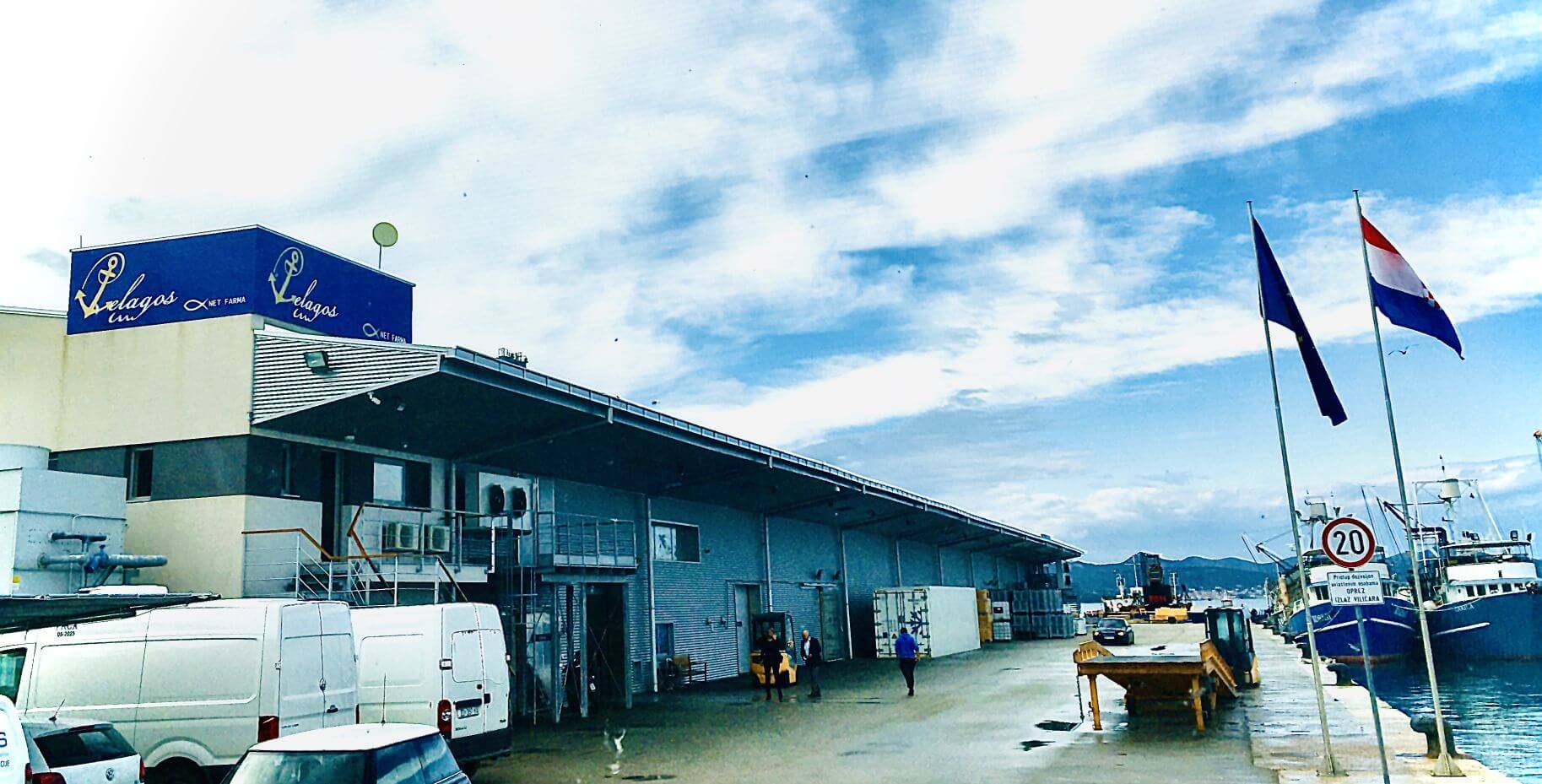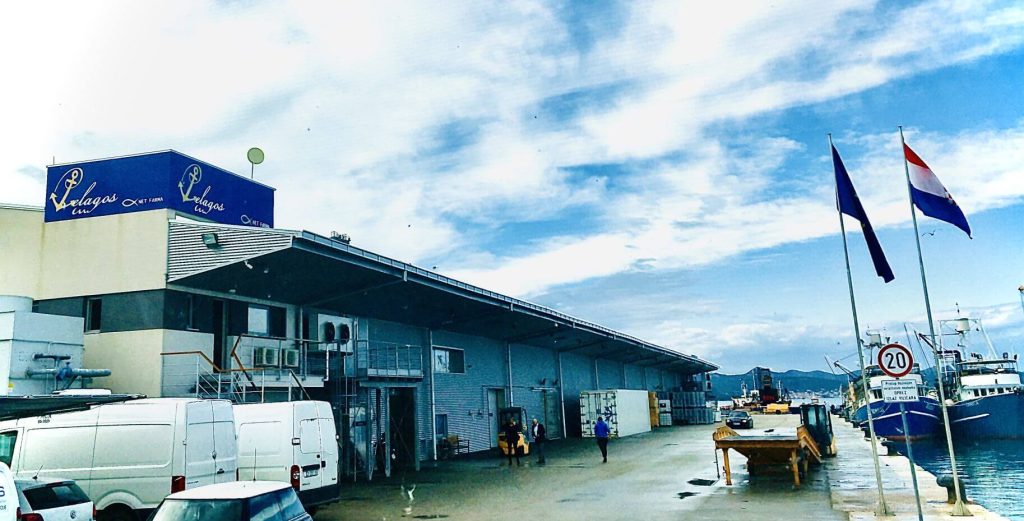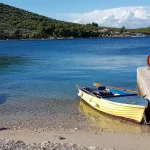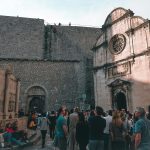Zagreb, 12 November 2019: The Meeting G2.5 Conference – Building Business Bridges – was held last week in Zagreb.
Croatia should help businesspeople in their work and support connections that create business eco-systems
- At the three-day Meeting G2.5 Conference, over 200 businesspeople participated, of which over 70 were successful businesspeople of Croatian descent from 18 countries.
- The conference finished with a business excursion to the town of Zadar, where participants visited the Pelagos fish farm, which is owned by general Ante Gotovina, while the town’s authorities organised a presentation on Zadar’s touristic and commercial potential in the town’s Prince’s Palace, with an emphasis on Zadar’s new business zone, Crno.
- As part of the conference, particularly inspirational speeches were given by Božo Skoko, Boris Ljubičić, Marco Buzolić and Tomislav Anadolac.
- Marco Buzolić: “Our chambers of commerce must carry out a united strategy, and we must create a virtual ring that will connect Croatians around the world so that, together, we can create a more prosperous and stronger Croatia.”
The Meeting G2.5 Conference – Building Business Bridges – which was held last week in Zagreb, didn’t just bring together over 200 participants, of which over 70 were successful businesspeople of Croatian descent from 18 countries, but also sent out some important encouraging messages to the broader public.
Marco Buzolić, a member of the Plava Laguna board, explained how at the beginning of this year he moved to Croatia after his grandparents had left the country 117 years earlier. Although he’s Chilean, Buzolić stated that he was also a proud Croatian and that he believed that, through his work and rich experience, he could help his homeland. He stressed that the greatest capital that Croatia has is her people. While discussing the greatest problems for returnee emigrants and people of Croatian descent who move to Croatia, he also presented solutions: the Croatian language can be learnt before, and after, arrival in Croatia; adaption to the way of life is necessary; acceptance of the Croatian work culture requires open and honest communication; and, finally, the key elements for every individual are resilience and adaptability. Buzolić called on the Croatian government to increase the number of initiatives that are geared towards attracting continual investment from the Croatian diaspora.
“Our chambers of commerce must carry out a united strategy, and we must create a virtual ring that will connect Croatians around the world so that, together, we can create a more prosperous and stronger Croatia,” he said.
Tomislav Anadolac, co-owner of the Zagreb company Duh u boci (Spirit in a Bottle), revealed how he and his business partner Hrvoje Bušić created, in just two years, the best gin in the world, Old Pilot’s Gin. Using only organic ingredients from across Croatia, they’ve succeeded in creating a taste that’s won the most prestigious prizes in the global beverage industry.
“We wanted to show that things in Croatia aren’t as bad as they’re often presented to be. Here it’s possible to create the best products for the whole world, even when there’s no tradition of such production. Dreams can be realised, and what we need most is self-confidence, optimism and dedicated work,” concluded Anadolac, an ‘old pilot’.
Inspiring presentations were also given by Croatia’s most well-known designer Boris Ljubičić, as well as professor Božo Skoko – Croatia’s most well-known expert for branding. Prof. Skoko presented the conclusions of the working group for the identity and brand of the Republic of Croatia (RH), which was founded by the Croatian president.
“The important elements of identity, as a foundation for the RH brand, are: a brave, industrious and proud people; a safe and relaxed lifestyle; natural beauty and diversity; a preserved country and innovation, as the groundwork for new investments; social responsibility, through education and healthcare available to everyone; a rich cultural and historical heritage; and ‘sweet and salty’ food – that is, a good authentic gastronomy,” he said.
Presenting seven directions for the development and management of the RH brand, prof. Skoko said, “Croatia has all the predispositions for becoming a country that’s tailor-made for people.”
At the end of the conference, Boris Ljubičić gave a witty 15-minute presentation of his work, and presented his own life project – the creation of Croatia’s visual identity, as a nation, and of the Croatians, as a people. The author of the world-famous red-and-white chequers – kockice – showed and described a series of examples of the visual elements and branding of countries across the world. He captivated his listeners with the rich meaning of deceptively simple works, demonstrating that an aesthetically uniform design can, at the same time, carry a number of important messages for the easier identification of a country and people. Of course, Ljubičić’s graphical world is filled with ‘kockice’ in various variations and shapes, which is also his conclusion: “Kockice, that’s what we Croatians are!”
The conference continued on its third day with a business excursion to the town of Zadar. Participants first visited the Gaženica port where the Pelagos tuna farm, which is owned by general Ante Gotovina, successfully exports its produce. The farm’s management informed the participants about the history of fishing in Croatia, as well as the beginnings and development of their farm, which exports virtually all of its produce to Asia, especially Japan.

During the visit, the rapid increase in fish farming worldwide was highlighted, along with the fact that the demand for fish on the European and world markets considerably outweighs the supply of quality fish. As a maritime country with largely unpolluted waters, Croatia therefore has enormous potential to redevelop its fishing industry, including the creation of similar companies and fish farms.
The business excursion continued to the Prince’s Palace in Zadar where the mayor of the town, Dr Branko Dukić, and his colleagues greeted the participants. From the representative of the town and the county chamber, conference participants heard the latest facts and figures on the area’s touristic and other commercial activities. The business zone Crno, which Zadar has been promoting to foreign investors around the world, attracted the most attention and questions. Crno, in Zadar’s hinterland, encompasses 400 hectares, and its proximity to transport infrastructure is especially attractive: only one kilometre from the A1 Zagreb-Dubrovnik highway, three kilometres from Zadar’s airport, four kilometres from the Gaženica port and four kilometres from Zadar’s industrial gauge.
“We began the Meeting G2.5 project with the aim of connecting Croatia with her diaspora, and to present the potential that such a connection can have for commerce. In five years, we’ve met businesspeople with Croatian roots from as many as 29 countries. During that period, over 950 participants have come to our conferences. Among them, more than 280 businesspeople from overseas have met with 300 Croatian companies. We’ve organised over 40 panels, represented over 40 start-ups and, every year, travelled on business excursions across Croatia. All up, we’ve connected practically a thousand people. That’s our contribution. However, again we come to the question: why has that significant potential not been realized? What do we have to do to take a step forward? We think that all Croatians beyond Croatia need to become ambassadors of the country. Croatian institutions have to recognise that and encourage Croatian diaspora communities and the people within them to more actively represent Croatia and Croatian products,” emphasised Josip Hrgetić, president of the Meeting G2.5 association, the organiser of the conference.
Media contact:
Meeting G2.5 Conference
Email: [email protected]
To read more about business in Croatia, follow TCN’s dedicated page.









